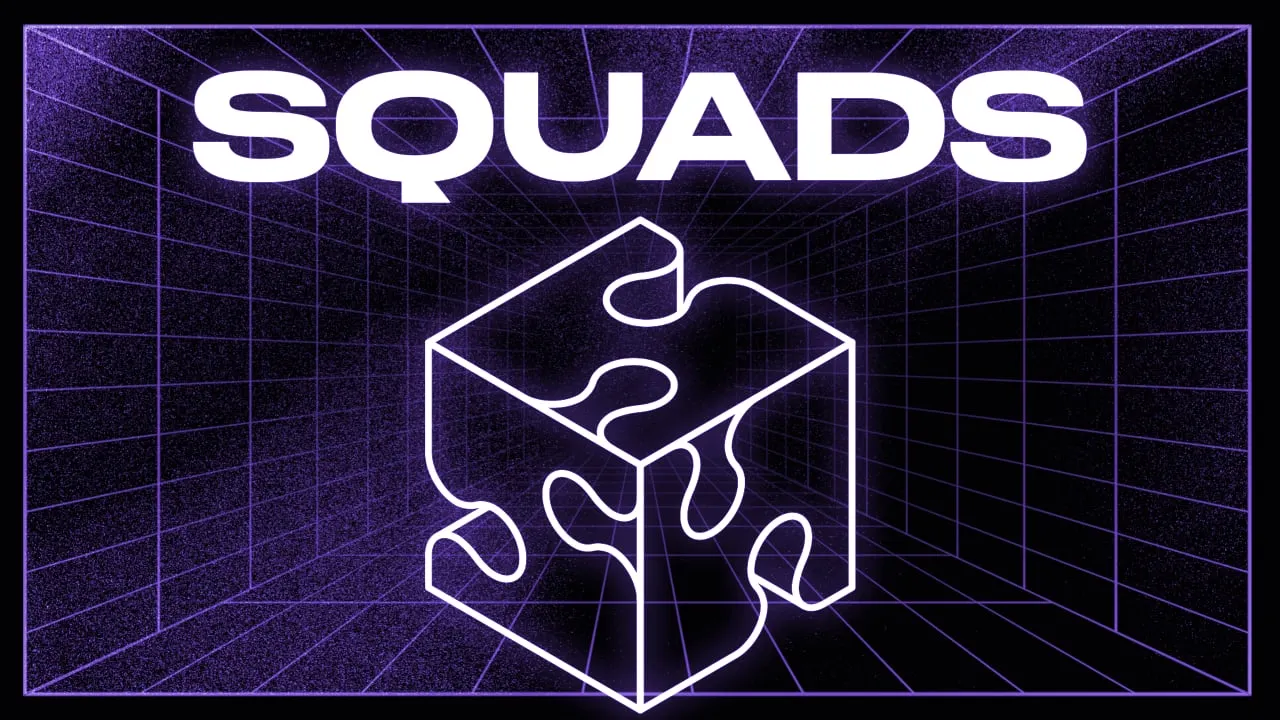In brief
- DAO infrastructure project Squads has launched on Solana’s mainnet.
- The project has also raised $5 million in a round led by Multicoin Capital.
DAOs have been a hot topic in the crypto world in recent months, with the vast majority of them currently being built on Ethereum. But with today’s launch of collaborative infrastructure protocol Squads, rising alternative blockchain network Solana could look a lot more appealing for decentralized teams and projects.
Squads announced its mainnet launch today at the Solana Hacker House event in Moscow, and the anticipated rollout was paired with an announcement of a $5 million strategic funding round. Multicoin Capital led the round, with participation from Jump Capital, Delphi Digital, Collab + Currency, SeedClub Ventures, Volt Capital, and others.
What is Squads, exactly? It’s “collaborative infrastructure for Web3-native teams,” co-founder Stepan Simkin told Decrypt ahead of the announcement. In other words, Squads provides the on-chain building blocks for Solana-based DAOs (or decentralized autonomous organizations) to function beyond the chatter that occurs in a Discord server.
“Right now in Web3, you can be an individual or you can be a DAO, but there isn't really a way for teams to organize their decision-making and manage group funds in a more trustless and transparent fashion,” Simkin explained. “Squads is all about providing flexibility for teams to find the right framework for them to organize and do things together in the Web3 space.”
Ready for teams
Squads’ feature set runs the gamut of distributed team needs, including a multi-signature wallet that requires multiple validations to confirm transactions, a vault for managing and disbursing team funds, DeFi protocol integrations for swapping crypto funds, and the ability to spin up proposals with tokenless, on-chain voting.
All told, Squads appears to fill many critical needs for DAOs on Solana in a single protocol, enabling decentralized collaboration while maintaining transparency. Simkin described the release as a big step forward for Solana DAOs, particularly with the advent of a user-friendly multi-sig wallet akin to Ethereum’s Gnosis Safe.
1/ The wait is almost over, we have been audited by @Neodyme and we are finally coming to mainnet on February 24th (this Thursday)! pic.twitter.com/Avy3tK0B7L
— Squads (@SquadsProtocol) February 21, 2022
“It's a young ecosystem, which is mostly full of builders—people are coming to Solana to build new protocols and new projects. We are kind of getting in at the right time with the tooling that we have,” said Simkin. He noted that some teams have resorted to using individual wallets, or command-line multi-sig wallet approaches that are difficult to use.
DAOs let decentralized communities come together for a shared purpose, whether it’s to raise funds for a cause, to pool cryptocurrencies for investments in NFTs and other assets, and to support the development of protocols and projects. Some have described DAOs as a group chat with a bank account, in a sense.
They’re not a brand new premise—in fact, the concept was popularized by The DAO, a major Ethereum project that was hacked in 2016 and altered the trajectory of the entire blockchain network. And it’s still making news, even this week. But DAOs really started to gain steam again in 2021, with ConstitutionDAO garnering widespread mainstream coverage in November.
Squads isn’t the only project building DAO infrastructure on Solana. Grape Network, for example, is a widely-used toolset for Solana-centric Discord communities and DAOs. It’s so popular, in fact, that its token launch last September took down the entire Solana network when bots tried to overwhelm the sale. Like Squads, Grape’s latest raise was led by Multicoin.
Grape’s focus is more on Discord gating and tools for DAO communities, while Squads handles more complex governance and funds management aspects. Ultimately, they’re meant to be complementary. Squads is designed to provide composable features that can work alongside or in concert with other Solana DAO tooling.
It’s still relatively early days for DAOs on Solana, as evidenced by such significant tools just coming online. Last week, Decrypt profiled a current situation with MonkeDAO, a community-run DAO that is embroiled in a dispute with the creators of NFT collection Solana Monkey Business (SMB) over the future of the popular profile picture project.
One of the sticking points is the SMB team’s demand that MonkeDAO implement full on-chain governance, but there have been technical questions about how to make that work with the SMB NFTs. Simkin—who displays an SMB NFT as his Twitter profile picture—said that it’s a prime example of how early Solana DAOs have persevered amid lacking tools and resources.
“MonkeDAO is a great example of how even when you don't have the right tools, and when you don't have enough support like they had in the beginning, you still can make it,” he said. “The tooling is gonna catch up.”
Expanding the squad
Simkin said that the investors that Squads amassed for this $5 million funding round have already brought a lot of insight and expertise to the table. “The amount of value-add we've gotten from pretty much all of our investors in this current round is already beyond what we could have imagined,” he said.
Squads—which previously raised a $1.5 million seed round—plans to use the new funds to grow its team and potentially expand its focus over time as it builds additional features for Solana teams. Simkin pointed to additional ways to let DAOs diversify their treasury from within Squads, as well as extra social media integrations.
In addition to launching infrastructure for DAOs to use, Simkin said that they’d also like to eventually work closely with projects and brands to custom-build DAOs. It’s similar to what Dapper Collectives plans to do on Flow, with a two-pronged approach that provides tools but also optional, white-glove service for more hands-on integrations.
“That is a large aspiration of ours,” he said. “We'd love to explore that in the future and get into the nitty-gritty of it, and actually start building DAOs with the projects that are out there.”

